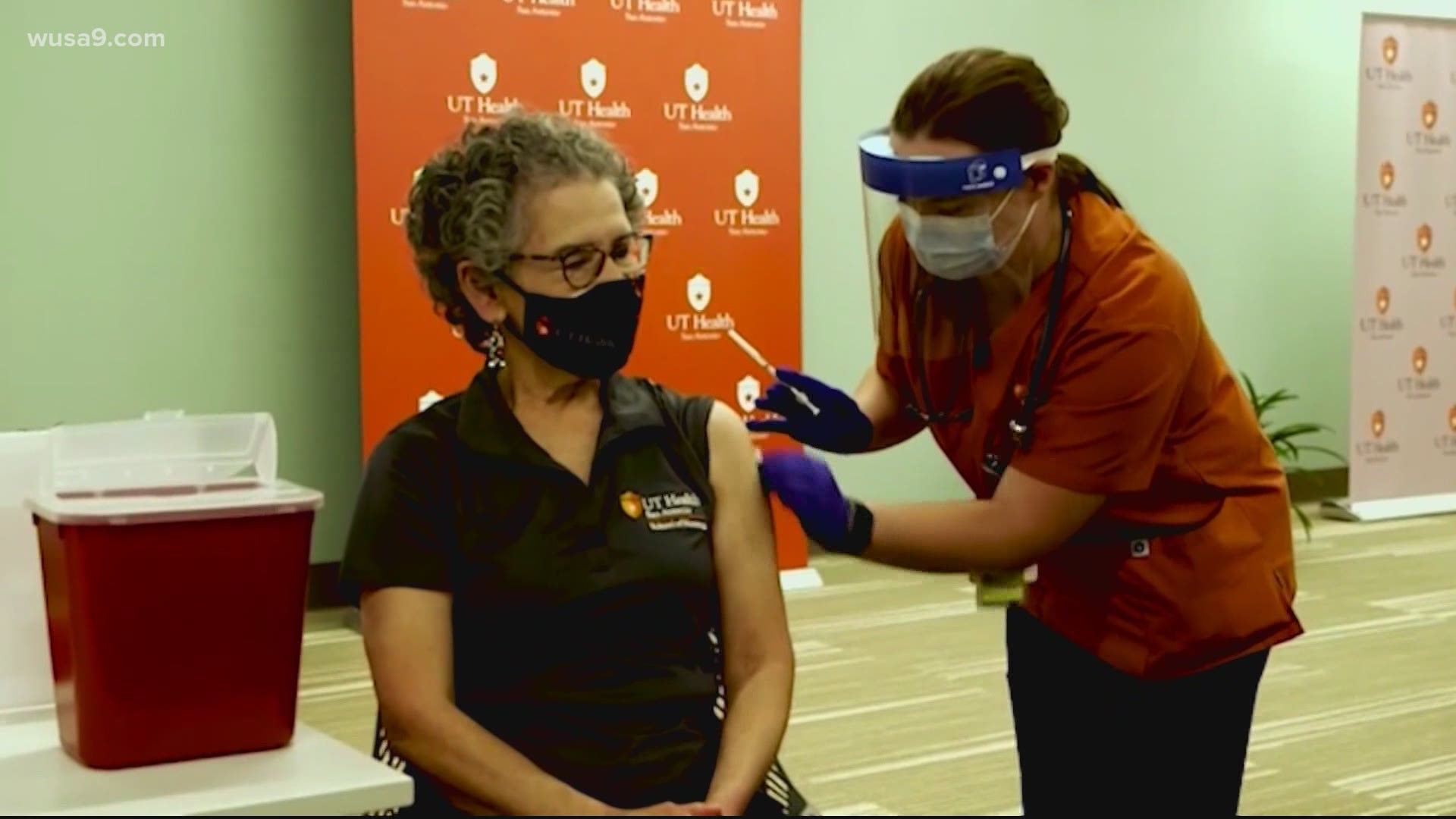WASHINGTON — With vaccines continuing to be rolled out all across the country, many people have been curious about the potential side effects and various impacts.
The Verify team exists to bring you the facts, so we're taking a look into what's been said about possible reactions for the major vaccines that have rolled out.
QUESTION:
What can you expect when you get the vaccine?
ANSWER:
In general, many people may experience effects like soreness at the injection site, fever up to 104° F, muscle aches, fatigue or headaches.
Our experts say the severity will vary from person to person, and many people can expect the second dose to have more severe effects.
SOURCES:
- Dr. Linda Nabha, infectious disease specialist
- Dr. Al Dababneh, infectious disease specialist at Mayo Clinic
- Dr. Siham Mahgoub, Medical Director for Center of Infectious Diseases Management and Research (CIDMAR) at Howard University Hospital and College of Medicine
- Centers for Disease Control (CDC) COVID-19 vaccine fact sheet
- U.S. Food and Drug Administration (FDA) fact sheets for Pfizer-BioNTech, Moderna and Johnson & Johnson COVID-19 vaccines
PROCESS:
The Verify team first wants to note that while you will likely feel some effects after receiving a COVID-19 vaccine, our experts stress that this is a completely normal response to immunization and it means the vaccine is doing it's job.
Based on the published resources, here are the likely responses you'll have to each vaccine:
Pfizer-BioNTech:
- Pain at the injection site
- Tiredness
- Headache
- Muscle pain
- Chills
- Joint pain
- Fever
Moderna:
- Pain at the injection site
- Tiredness
- Headache
- Muscle pain
- Chills
- Joint pain
- Swollen lymph nodes in the same arm as the injection
- Nausea and vomiting
- Fever
Johnson & Johnson:
- Pain at the injection site
- Redness of the skin at the injection site
- Swelling at the injection site
- Headache
- Tiredness
- Muscle aches
- Nausea
- Fever
*NOTE: the AstraZeneca vaccine has not been approved for use in the United States. We will update this list as U.S. regulators approve and issue information about its known effects.
AstraZeneca, as provided by the European Medicines Agency:
- Pain and tenderness at the injection site
- Headache
- Tiredness
- Muscle pain
- General feeling of being unwell
- Chills
- Fever
- Joint pain
- Nausea
The FDA notes that for two-dose vaccines, more people experienced side effects after their second dose than after their first. Our experts echoed that.
"After the second dose, which is 21 days later for the Pfizer or 28 days for the Moderna," Dr. Siham Mahgoub explains. "You might get more, not severe, but I would say more extensive symptoms than the first dose."
"If you do develop symptoms after the second dose, you just know that the vaccine is working," Dr. Al Dababneh told us.
The mRNA and adenovirus vector vaccines work by training your body to fight off a coronavirus infection before ever coming in contact with the virus itself. That way, if you ever get infected, your immune system can work to prevent severe disease. In the case of two-dose vaccines, the first dose is like a practice run, and the second dose is like a scrimmage.
It's a good thing to have that response," Dr. Linda Nabha says. "It means that your body is priming itself, it's preparing itself, it's creating antibodies so when or if you see COVID, it's got those memory antibodies ready to go."
The Verify team will update this story as we learn more about the other vaccines that come up for approval in the U.S.


